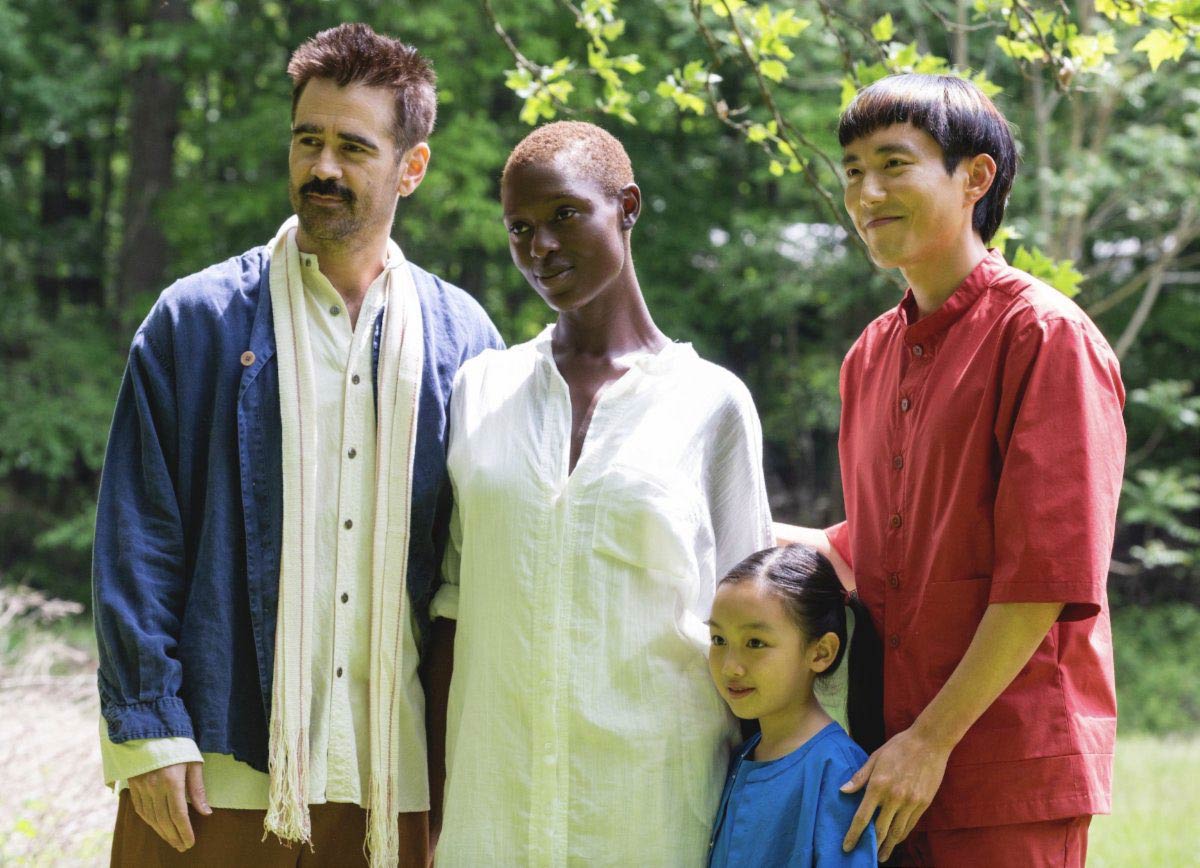“If we break any human being open, they contain worlds; they contain galaxies, and we’re often not as curious or interested in the people all around us.” Video essayist turned filmmaker Kogonada’s remarkable feature debut “Columbus” was about the meeting of two worlds invisibly occupying the same space. The film almost feels out of time, or that itself time stops, every time its lead characters find meaning and solace in one another. An impassioned, recent college graduate (Haley Lu Richardson) bonds with an older, Korean American translator (John Cho) over buildings admired by his father, seemingly inanimate objects of human manufacturing.
An ardent admirer of Richard Linklater, the South Korean-born filmmaker’s sophomore feature, “After Yang,” is unmistakably a Kogonada film in its artistic language and cinematic scholarship. Altering the title of a Philip K. Dick lite short story, “Saying Goodbye to Yang,” (from the outstanding collection “Children of the New World” by Alexander Weinstein, which one could see a Linklater-esque rotoscope approach to the anthology also working) the director reframes the narrative in a truly transitory fashion. Breaking apart ‘Yang,’ literally, Kogonada takes a story about a father (played by Colin Farrell) trying to fix a dying, Chinese, robot boy (Justin H. Min) and turns it into a soothing, interpersonal odyssey on love and vitality, in a way that’s very “The Tree of Life — calling it “Before Death” would have been too obvious though.
“The thing I love about the word “after” is that it has a double meaning,” Kogonada said, “like a post-time experience. Certainly, it means after Yang no longer functions, but it also means the pursuit of something — that you’re going after something — and both of those meanings really felt right for the story. There was something in the idea that, at some point, Jake [Colin Farrell’s character] was in pursuit of Yang. Not so much to fix him, but he was really trying to understand — what’s essentially, in his mind — an appliance to him.”
In addition to rolling off the tongue like an Ozu title, “After Yang” very much evokes Linklater’s melding of the passage of time with the flickering image, although Kogonada adds a sci-fi twist in the form of stored memories, conceiving of a kind of ephemeral star map that also feels like a never-ending forest. Cinematically, it’s quite unlike anything this writer has seen on the silver screen. “I knew I wanted [Yang’s memories] to feel organic as well as somehow represent [his] struggle for a sense of time and place,” Kogonada told us. “[I had] this idea there were ways in which his memories were stored, but I also wanted to feel the fragments of a place being constructed.”
READ MORE: Sundance 2022 Preview: 20 Must-See Movies From The Festival
Despite the science fiction angle, the filmmaker was adamant “about not making it familiar in the computer kind of way; that would be an element and a foundation, but it would also break into the organic world. Obviously, the imagery references space itself: a galaxy.”
“What Yang represents in many ways to me is just this profound sense of time.” Kogonada said. “In some ways, Yang is all of us. If you open any of us up, we are nothing but a profound sense of time.”
Don’t miss our other Sundance 2022 coverage, and look out for our full interview in March, closer to the theatrical release of “After Yang.”





